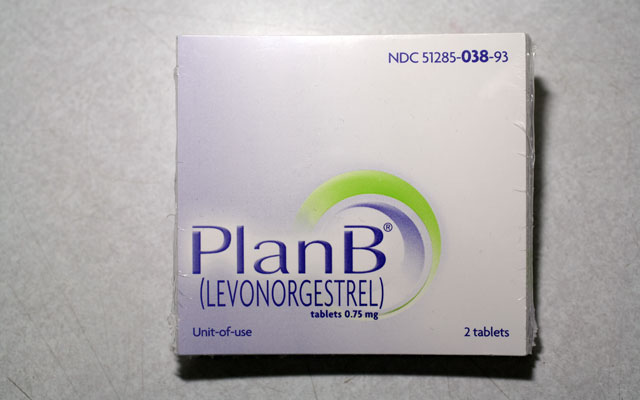
A federal judge ordered the Food and Drug Administration to make “morning-after” emergency contraception pills available without a prescription to all girls of reproductive age (Allan Tannenbaum/Polaris/Newscom)
This week, the Obama Administration agreed to allow the sale of Plan B One-Step, also known as the “morning-after” pill, to women of any age without a prescription, seriously undermining parental authority in minor children’s health care.
In a letter to New York District Court Judge Edward Korman, the Department of Justice agreed last night to drop their appeal of Korman’s April ruling that requires the over-the-counter sale of Plan B to girls of any age. Currently, the drug is available only behind the counter without a prescription for girls and women 15 years and older.
Touted as an “emergency contraceptive,” Plan B contains a large dose of a common contraceptive drug with potentially serious side effects. It is advertised to prevent pregnancy for up to 72 hours after unprotected sex by preventing ovulation, but in some instances, as the manufacturer’s website admits, the drug can potentially prevent implantation of an already conceived embryo—effectively causing a very early abortion.
Parents have a clear interest in the medical decisions of their minor children, especially when those decisions are of the magnitude of a potential abortion. In a world where most children need parental approval to play contact sports, allowing parents the chance to discuss such important medical decisions with minors seems obvious and is a stance that a majority of Americans agree with when it comes to teen sexuality.
In 2011, noting that girls as young as 11 or 12 can potentially become pregnant and may seek to use the drug, Secretary of Health and Human Services Kathleen Sebelius had blocked the Federal Drug Administration from allowing over-the-counter sale of Plan B.
Even President Obama lauded Secretary Sebelius’s decision, at the time stating:
I think it is important for us to make sure that we apply some common sense to various rules when it comes to over-the-counter medicine.… The reason Kathleen [Sebelius] made this decision was she could not be confident that a 10-year-old or an 11-year-old going into a drug store should be able, alongside bubble gum or batteries, be able to buy a medication that potentially if not used properly could end up having an adverse effect.
However, such “common sense”—along with the best interest of adolescent children—was apparently not a consideration in the Administration’s decision this week.
Instead of providing unrestricted access to a controversial and potentially abortion-causing drug to young teens, those concerned with reducing teen pregnancy should focus on approaches that work.
Sexual risk avoidance programs, also known as abstinence-only education, have been shown to have a positive influence on teens’ decisions to delay sexual initiation. Likewise, as data on Heritage’s FamilyFacts.org demonstrates, teens who regularly spend time with their parents and discuss the social and moral consequences of sexual activity are less likely to have sex. Those conversations and education can help give teen girls the information they deserve on the serious consequences of early sexual activity.
Parents—and all Americans—should question government decisions that ignore the profound influence of parental involvement in teens’ lives and side-step their right to discuss and direct their children’s health care.




























